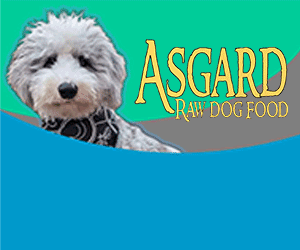Integrative Veterinary Medicine involves the use of the most appropriate Western medicine techniques along with the best of what holistic medicine has to offer. In this way, the pet benefits from the best of both worlds! When I speak of using the “most appropriate” Western medicine techniques, I mean the art of choosing the right tool for the right problem. Often, conventional medicine lumps many individuals into the same group. Every animal with the same diagnosis gets the same treatment. My holistic philosophy of medicine honors the individual animal and each garners a unique approach.
Western medicine is geared toward fighting disease. In fact, in veterinary school, we are not taught about health care; we are taught about disease care. While this approach imbues the practitioner with vital skills, it gives an incomplete view of health and healing. Holistic medicine, on the other hand is focused on the health of the patient. By helping the pet’s body function to its highest level, we aid the animal companion in regaining wellbeing.
Integrative Veterinary Medicine practitioners realize that these two approaches are not mutually exclusive. It is certainly possible to strengthen the body while fighting disease. For example, if a pet has a serious infection, it makes sense to give antibiotics to kill the bacteria. But, no antibiotic can help a pet with a failing immune system. So, the use of supplements to support the animal’s immune system is also called for. And by the way, while antibiotics are killing off the bad bacteria, they are also decimating the good bacteria in the animal’s gut. Any pet on antibiotics needs a probiotic supplement to maintain intestinal and immune system health.
The holistic approach to health honors the body’s ability to heal itself. In fact, the body comes complete with its own pharmacy. Proof for this assertion can be found by studying the placebo effect. It is a fact that on average, 30% of those treated with a sugar pill will get better – no matter what disease we’re talking about. While we might say this is a case of mind over matter, we have to acknowledge that these individuals have found a way to cure themselves. Holistic methods tap into this innate ability of selfhealing.
I would also like to point out that while fighting disease is great, it is much better to avoid problems in the first place. And, how many tools does conventional medicine have for preventing disease? By my count one – vaccines. While prudent vaccination plans are helpful, we must realize that every vaccine is a double-edged sword. Each one can affect a pet negatively and it is certainly possible to over-do it when it comes to vaccinating. Every pet does not need every vaccine every year. Each animal should be vaccinated based on its unique lifestyle and disease risk.
The beauty of holistic medicine is that it can powerfully prevent disease. Holistic practitioners can detect what has been termed dis-ease. Dis-ease is a state of health where the animal is having problems but those issues have not progressed to the point of disease. Let’s face it, just because a pet is not sick does not mean she is perfectly healthy.
Most pet owners have witnessed dis-ease in their four-legged companions. Every once in a while, they can clearly see that their pet is not acting right. Unfortunately, when they take him to their vet, the exam and tests do not identify a disease. In such cases the veterinarian is at a loss to come up with a treatment because there is no diagnosis. Holistic methods give the practitioner techniques to detect subtle imbalances, along with tools to fix the problem.
The bottom line is that by embracing Integrative Medicine, a veterinarian has more tools in the old tool box. While conventional veterinarians have drugs and surgery, an integrative vet has those important tools plus things like nutritional supplements, herbs, chiropractic, acupuncture, energy medicine, massage therapy, therapeutic laser, and even Traditional Chinese Veterinary Medicine food therapy. No doubt you’ve heard the saying, “If the only tool you have is a hammer, everything looks like a nail.” An integrative vet will use the appropriate tool.



